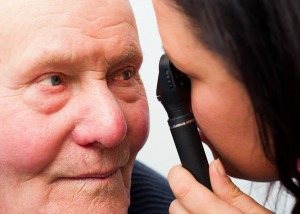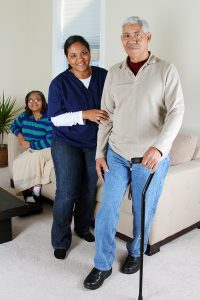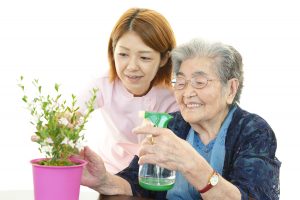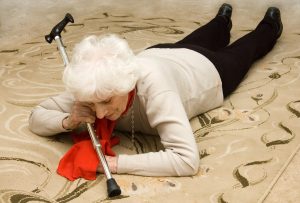Home Health Care Jamaica NY
 As a family caregiver, you know that the winter season often brings with it illness and infection. While these are generally mild to moderate, for your elderly loved one they might be much more pressing. Aging adults have immune systems that are lower and not as effective as those of younger people, which means that an illness or infection that seems mild to you or your children could develop into something very serious for your senior.
As a family caregiver, you know that the winter season often brings with it illness and infection. While these are generally mild to moderate, for your elderly loved one they might be much more pressing. Aging adults have immune systems that are lower and not as effective as those of younger people, which means that an illness or infection that seems mild to you or your children could develop into something very serious for your senior.
Understanding the different types of infections and illnesses that are possible can help you to detect possible issues when they occur so that you can give your parent the care that they need and ensure that they get the medical treatment necessary to help them overcome their issue and move forward more healthily.
One common infection that occurs at this time of year, but can occur at any time of the year, is conjunctivitis. Also known as “pink eye”, this is an infection of the membrane inside the eyelid and over the white portion of the eye. This infection leads to inflammation of the lining. The term “pink eye” comes from the red coloration of the white portion of the eye that occurs when the blood vessels of the eye become irritated and inflamed.
Pink eye is generally the result of a bacterial or viral infection but can also be caused by an allergic reaction. Though it can be very uncomfortable, it very rarely causes serious problems such as vision loss. It is important to note, however, that this infection is highly contagious so it is critical that as soon as your parent notices the signs of pink eye or is diagnosed with this infection they, and you, take caution to help prevent them from spreading this infection into their other eye or into yours.
Starting elderly home health care for your aging parent is one of the best decisions that you can make for them throughout the course of your caregiver journey with them. An elderly home health care services provider can be with your senior loved one on a customized schedule that is tailored to their specific needs, challenges, and limitations in a way that is right for them.
This means that they can enjoy a lifestyle that is fulfilling, active, and engaged, but that is also safe, comfortable, and healthy. A care provider can create a highly personalized course of care, support, assistance, and encouragement designed to address their personality, goals, and beliefs so that they are able to live the lifestyle that they desire and deserve throughout their later years.
When it comes to helping your elderly loved one deal with a pressing health condition or recover from an illness or infection such as pink eye, this elderly home health care services provider can be with your aging parent to encourage them to comply with their prescriptions and lifestyle goals, make healthy lifestyle choices, and practice aggressive germ control that will allow them to stay healthier as they age in place.
Sources: https://www.cdc.gov/features/conjunctivitis/
https://www.mayoclinic.org/diseases-conditions/pink-eye/basics/definition/con-20022732


 Support groups are a fantastic means of gaining information and emotional support if you're a family caregiver. Finding the right one for you can be a little more challenging than you might think at first, however. With some perseverance, you can find just the right group.
Support groups are a fantastic means of gaining information and emotional support if you're a family caregiver. Finding the right one for you can be a little more challenging than you might think at first, however. With some perseverance, you can find just the right group. In your role as a family caregiver, you will help your elderly parent through a variety of challenges. One of the most important things that you can do to prepare you to give your elder the best care possible is to understand the dangers that they are facing. This enables you to identify their greatest risks and customize the care that you give them to help ensure that they stay safe and healthy while also encouraging them to continuing living an engaged, active, and fulfilling lifestyle.
In your role as a family caregiver, you will help your elderly parent through a variety of challenges. One of the most important things that you can do to prepare you to give your elder the best care possible is to understand the dangers that they are facing. This enables you to identify their greatest risks and customize the care that you give them to help ensure that they stay safe and healthy while also encouraging them to continuing living an engaged, active, and fulfilling lifestyle. Having everyone on the same page regarding your elderly loved one's health and home care needs is essential for her to get the help that she needs. The problem is that sometimes different family members have dramatically different information about the situation.
Having everyone on the same page regarding your elderly loved one's health and home care needs is essential for her to get the help that she needs. The problem is that sometimes different family members have dramatically different information about the situation. When a senior begins having difficulty maintaining their safety or even performing basic tasks of everyday life on their own, they may call on family members to help out. This could be a sibling, adult child, or someone else who lives in the area or relatively close.
When a senior begins having difficulty maintaining their safety or even performing basic tasks of everyday life on their own, they may call on family members to help out. This could be a sibling, adult child, or someone else who lives in the area or relatively close. If you're concerned that your elder loved one could ever break a hip, you need to first look into making sure that her home is as safe as possible. Checking even a few of these items can help to ensure that your loved one is less likely to fall and injure herself.
If you're concerned that your elder loved one could ever break a hip, you need to first look into making sure that her home is as safe as possible. Checking even a few of these items can help to ensure that your loved one is less likely to fall and injure herself. Being a family caregiver means that now and again you're going to make a mistake or do something that makes you feel terrible. What you need to do in that situation is forgive yourself, but that can be difficult to do.
Being a family caregiver means that now and again you're going to make a mistake or do something that makes you feel terrible. What you need to do in that situation is forgive yourself, but that can be difficult to do. The elderly are prone to dehydration. One study showed that 27% of the residents of an LTC facility were admitted to the hospital due to signs of dehydration.
The elderly are prone to dehydration. One study showed that 27% of the residents of an LTC facility were admitted to the hospital due to signs of dehydration. When an elderly loved one first starts to deal with an illness or health condition that can deteriorate quickly, many of your family members might develop some denial about the situation. This is normal, but it can be difficult to overcome on your own.
When an elderly loved one first starts to deal with an illness or health condition that can deteriorate quickly, many of your family members might develop some denial about the situation. This is normal, but it can be difficult to overcome on your own.